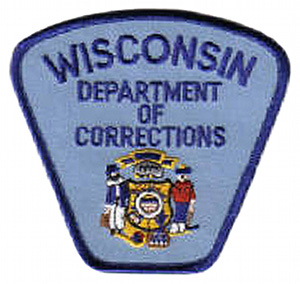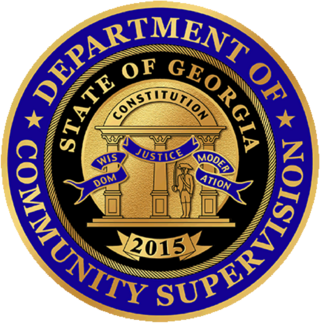
The Maryland Department of Public Safety and Correctional Services (DPSCS) is a government agency of the State of Maryland that performs a number of functions, including the operation of state prisons. It has its headquarters in Towson, Maryland, an unincorporated community that is also the seat of Baltimore County, Maryland, United States, located north of Maryland's largest city of Baltimore. Additional offices for correctional institutions supervision are located on Reisterstown Road in northwest Baltimore.
Public Safety Canada, legally incorporated as the Department of Public Safety and Emergency Preparedness (PSEPC), is the department of the Government of Canada responsible for (most) matters of public safety, emergency management, national security, and emergency preparedness in Canada.

A law enforcement officer (LEO),, or police officer or peace officer in North American English, is a public-sector or private-sector employee whose duties primarily involve the enforcement of laws, protecting life & property, keeping the peace, and other public safety related duties. Law enforcement officers are designated certain powers & authority by law to allow them to carry out their responsibilities.
Corrections Victoria is part of the Department of Justice and Community Safety in the Victorian Government, and is responsible for the provision of custodial and community-based services as an important element of the criminal justice system in the state of Victoria, Australia. In March 2018, Dr Emma Cassar was announced as the new Commissioner of Corrections Victoria to commence in June 2018.

Craig William John Minogue is an Australian convicted murderer responsible for the 1986 bombing of the Russell Street Police Headquarters in Russell Street, Melbourne, Victoria, Australia. Minogue was sentenced to life imprisonment, with a non-parole period of 30 years. In 2012, Minogue was awarded his PhD in applied ethics, human and social services by La Trobe University. The thesis, entitled "Seeing who's who: identifying a violently oppositional sense of self and other which is emerging from an immoral discourse of punishment and revenge" is not available to the public for safety reasons. Access is restricted until November 2027.
Manitoba Justice, or the Department of Justice, is the provincial government department responsible for administering the Crown Law justice systems in the province of Manitoba.

The Wisconsin Department of Corrections (WIDOC) is an administrative department in the executive branch of the state of Wisconsin responsible for corrections in Wisconsin, including state prisons and community supervision. The secretary is a cabinet member appointed by the governor of Wisconsin and confirmed by the Wisconsin Senate.

In Canada, carding, officially known in Ontario as the Community Contacts Policy, is an intelligence gathering policy involving the stopping, questioning, and documenting of individuals when no particular offence is being investigated. The interactions take place in public, private or any place police have contact with the public. The information collected is kept on record in the Field Information Report (FIR) database. FIRs include details including the individuals' gender, race, the reason for the interaction, location, and the names of any associates, to build a database for unspecified future use. Officially, individuals are not legally detained, but this distinction is not clear. Carding programs have been shown to consume a considerable amount of police resources, with little to no verifiable results on the level of crime. Carding is also known to contribute to a disproportionate amount of black and Indigenous people being recorded in law enforcement databases. Consequences for Indigenous and racialized populations include mental and physical health problems, loss of trust with the police, disparities within the criminal justice system, and social disadvantage, including potential loss of educational and employment opportunities.

The Georgia Department of Community Supervision (DCS) is an executive branch agency of the U.S. state of Georgia. DCS is headquartered in the James H "Sloppy" Floyd Veterans Memorial Building with additional field offices throughout the state. DCS is tasked with: the supervision and reentry services of felony probationers and parolees; the oversight of adult misdemeanor probation providers; and, provides administrative support to the Georgia Commission on Family Violence (GCFV).

The Department of Justice and Attorney-General (DJAG) is a department of the Queensland Government with responsibilities for the administration of justice, support to Queensland courts, regulatory policy and consumer protection, legal aid, youth justice, corrective services, and other community and legal services.
The New South Wales Department of Communities and Justice, a department of the Government of New South Wales, is responsible for the delivery of services to some of the most disadvantaged individuals, families and communities; and the administration and development of a just and equitable legal system of courts, tribunals, laws and other mechanisms that further the principles of justice in the state of New South Wales, Australia. It also provides services to children and young people, families, people who are homeless, people with a disability, their families and carers, women, and older people. The department is the lead agency of the Stronger Communities cluster of the New South Wales government.







